Alabama Legislature to hold organizational session Tuesday

The Alabama Legislature will be in session on Tuesday. This two-day session is not to pass legislation but rather to organize for this new quadrennium. Both bodies will pass rules for the Legislature to operate under moving forward and set their leadership. Most attention is focused on the Alabama House of Representatives, where a number of changes are coming. Both Speaker of the House, State Rep. Mac McCutcheon, and Speaker Pro Tem. State Rep. Victor Gaston did not run for re-election in 2022. The House is expected to elect state Rep. Nathaniel Ledbetter as the new Speaker and State Rep. Chris Pringle as the new Pro Tem. During the last legislative session, Republicans had a 77 to 28 filibuster-proof supermajority over Democrats. That is unchanged in 2023, so the Republican choices for the top leadership positions in the House are virtually a lock to be elected on Tuesday. Ledbetter is the former Mayor of Rainsville and was the Majority Leader during the previous quadrennium. He is in his third term in the state legislature. State Rep. Scott Stadthagen will be the new Majority Leader. He is serving in his second term in the Legislature. State Rep. Anthony Daniels will return as the House Minority Leader. Ledbetter has already announced his staff hires and committee chairs. This is one of the least experienced groups of House members in many years. Two-thirds of the House members are in their first or second term. This is the biggest change in the body since Republicans took control of the Legislature in 2010 after 135 straight years of Democratic Party domination. In the Alabama Senate, Lieutenant Governor Will Ainsworth was re-elected in a landslide. Ainsworth serves as President of the Senate as one of his office’s primary responsibilities. The inauguration for his second term will be on Monday. State Sen. Greg Reed will return as Senate President Pro Tempore. State Sen. Clay Scofield was also re-elected and likely will continue as the Senate Majority Leader. Republicans had a filibuster-proof 27 to 8 supermajority in the Alabama Senate during the last legislative session, and that supermajority returns. Both Reed and Scofield are returning for their fourth term in office. State Sen. James T. “Jabo” Waggoner returns as the dean of the Legislature. Waggoner was first elected to the Legislature in 1966. He is expected to continue to chair the powerful Senate Rules Committee. Both the House and the Senate will update their rules for the next four years. This is just an organizational session, and no actual legislation will be introduced or passed during these anticipated two days. The state legislature will return on March 7 for the 2023 regular legislative session. A regular legislative session is constitutionally limited to just 30 days. To connect with the author of this story, or to comment, email brandonmreporter@gmail.com.
Alabama Republican Party votes no confidence in RNC Chair Ronna Romney McDaniel
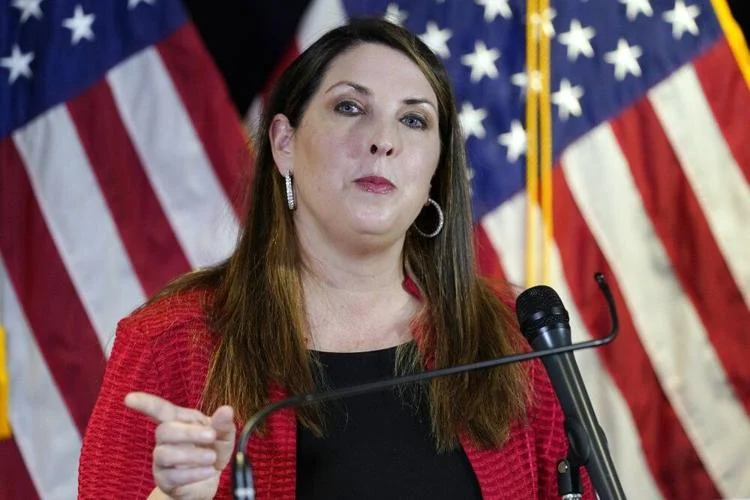
The Alabama Republican Party Steering Committee voted on Saturday for new leadership at the Republican National Committee (RNC). Incumbent RNC Chair Ronna Romney McDaniel is seeking re-election to the position. The Alabama Republican Party Steering Committee announced that they will not support McDaniel’s re-election. “It’s nothing personal,” Alabama Republican Party Chairman John Wahl told Alabama Today Monday. Wahl acknowledged that there are a number of factors in why the GOP has underwhelmed in recent elections. “It’s not all her fault,” Wahl said, emphasizing the need for a change of direction at the RNC. “We believe that RNC leadership needs a new vision for future elections,” the Steer Committee said in a statement. “We believe that the RNC needs fresh, new leadership who can inspire and lead grassroots Republicans to victory.” “The Alabama Republican Party’s Steering Committee cannot support or endorse Ronna McDaniel for RNC Chair and declare our vote of no-confidence in her leadership,” the Steering Committee concluded. “We encourage all RNC members across the country to support new leadership at the RNC Winter Meeting.” There is growing dissatisfaction with the RNC after the Republican Party lost control of the House in 2018, former Vice President Joe Biden unseated President Donald Trump in the 2020 election, the loss of the Senate when two GOP incumbents were defeated in the Georgia election runoffs, the failure to retake the Senate in 2022, and the GOP’s loss of some gubernatorial races – most notably Arizona – which could have consequences in 2024. Despite this, McDaniel, the niece of U.S. Sen. Mitt Romney (R-Utah), is running for a fourth term as head of the RNC. She is being challenged by Harmeet Dhillon, an RNC member from California. Supporters of McDaniel argue that the Republicans did win back control of the House of Representatives in the 2022 midterms and that the RNC has raised $1.5 billion during McDaniel’s tenure – more than any previous RNC Chair. One hundred sixty-eight delegates will decide who leads the RNC moving forward into the 2024 elections at the RNC meetings later this month. The 440-member Alabama Republican Party Executive Committee will meet on February 24th and 25th in Birmingham at the BJCC. To connect with the author of this story, or to comment, email brandonmreporter@gmail.com.
Robert L. McCollum considers challenging Rep. Mike Rogers

On Monday, Robert McCollum announced that he is considering running in the Alabama Republican primary for Congress. McCollum told Alabama Today that he is forming an exploratory committee to look at challenging long-time incumbent Congressman Mike Rogers (R-AL03). McCollum said that he had been considering a run anyway but was motivated to move up his timeline for the 2024 race after the Friday night incident where Rogers had to be restrained by Rep. Richard Hudson on the floor of the U.S. House of Representatives Friday night from coming after Rep. Matt Gaetz. Rogers was angered by Gaetz’s refusal to change his vote from present to in favor of Rep. Kevin McCarthy for Speaker of the House. “After the disaster on the house floor, it became clear to me that the people of the 3rd congressional district deserve better than that. That was the most childish thing I had ever seen,” McCollum said. “What have we become? What happened to respect for our colleagues? What happened to spirited debates and not playground brawls?” Rogers has apologized for losing his temper with Gaetz. “.@RepMattGaetz and I have a long and productive working relationship, that I am sure will continue. I regret that I briefly lost my temper on the House Floor Friday evening and appreciate Matt’s kind understanding,” Rogers wrote on Twitter Sunday. Gaetz has accepted the apology and said he and Rogers have a strong working relationship. McCollum claimed that he found the incident “embarrassing” for the state and the district but had already been considering challenging Rogers because he was dissatisfied with how Rogers was representing the district. “The people of the 3rd district deserve someone that is going to represent them and not the Washington establishment!” McCollum said. “Someone that will work tirelessly with his colleagues to get the best for the American people!” Rogers, who is the Ranking Member of the powerful House Armed Services Committee in the 117th Congress, is expected to Chair the committee in the 118th Congress. McCollum said that under the circumstances, Rogers should not be chairing any committee. “Congressman Rogers should step down from any committee or chairmanship,” McCollum said. “That kind of behavior should not be rewarded nor tolerated.” Rogers was accused of being intoxicated at the time of the incident by Rep. Tim Burchett (R-Tennessee). “Congressional leaders should not be allowed to drink on the house floor!” McCollum said. “Our leaders should have more respect for our capital and the meaning of it!” Rogers released a statement following McCarthy’s election as Speaker of the House on the 15th ballot. “I am excited to see Kevin McCarthy elected Speaker of the House,” Rogers said. “Now it is time for the House to do the work the American people sent us here to do.” McCollum appealed to voters for their support. “I’m not going to sit here and promise that I will be 100% perfect – no one but God is! But what I can promise you is honest representation, conservative representation, sober representation, and strong conservative representation of Alabama’s 3rd congressional district!” McCollum said in a statement. “That is why today I’m announcing I will be forming an exploratory committee for Alabama’s 3rd congressional district currently held by Mike Rogers; we deserve better!” Robert Lane McCollum is a native of Tallapoosa County. He is a graduate of Horseshoe Bend High School. He has been a small business owner. McCollum was defeated by Public Service Commissioner Chip Beeker in the 2022 Republican primary runoff. Rogers has represented the Third Congressional District since 2003. He previously represented Calhoun County in the Alabama House of Representatives and on the County Commission. The 2024 Alabama Republican Primary is tentatively scheduled for March 5, 2024. To connect with the author of this story, or to comment, email brandonmreporter@gmail.com.
Barry Moore congratulates Kevin McCarthy

Early on Saturday morning, Congressman Kevin McCarthy was elected as the 55th Speaker of the House in one of the most contentious Speaker fights in American history – narrowly winning on the 15th ballot. Congressman Barry Moore (R-AL02), who had steadfastly supported McCarthy throughout the four days and one long night of voting, issued a statement after Kevin McCarthy was elected by the House of Representatives as its Speaker. Moore said that the intensive months-long negotiations between Republican leadership and the House Freedom Caucus yielded significant reform to the rules governing the operation of the U.S. House of Representatives. “Congratulations to Kevin McCarthy for his election to Speaker of the House,” said Moore. “With this vote complete, House Republicans will get to work using the power of the purse and our Constitutional oversight authority to hold the Biden administration accountable and fight its radical agenda.” “For me and my conservative colleagues, this vote was less about individual personalities than taking advantage of an historic opportunity to negotiate much-needed rules changes to ensure every congressman, regardless of political ideology, can provide more input to the legislative process and therefore more effectively represent the people of their district,” Moore continued. “With the rules changes we negotiated, individual legislators will possess the ability and responsibility to offer and vote on amendments and to write bills in committees. With more direct input into the workings of the House where they serve, elected legislators will be more accountable to the voters, and I am hopeful the House will function more effectively and as our Constitutional framers intended.” After the vote, Moore was sworn into the 118th Congress with his colleagues. “It is truly an honor to begin my second term, and as long as I am in office, I pledge to serve the Alabamians I represent, not a Speaker, not a political party or leadership structure, and not a special interest,” Moore said. “I look forward to continuing my work for Alabama and our nation in this Congress.” On Monday, the Republican-controlled House of Representatives passed new rules for the body for the 118th Congress 220 to 213. All House Democrats voted against the new rules. Rep. Tony Gonzales was the only Republican to vote in opposition to the new rules, which included many concessions to the Republican holdouts that held up McCarthy’s election for days last week. Moore represents Alabama’s Second Congressional District. He is a veteran and small businessman from Enterprise. Moore served in the Alabama House of Representatives from 2010 to 2018. To connect with the author of this story, or to comment, email brandonmreporter@gmail.com.
Georgia grand jury ends probe of Donald Trump, 2020 election

The special grand jury in Atlanta investigating whether then-President Donald Trump and his allies committed any crimes while trying to overturn his 2020 election loss in Georgia has finished its work, bringing the case closer to possible criminal charges against Trump and others. Fulton County Superior Court Judge Robert McBurney, who was overseeing the panel, issued a two-page order Monday dissolving the special grand jury, saying it had completed its work and submitted a final report. The lengthy investigation has been one of several around the country that threaten legal peril for Trump as he mounts a third bid for the White House. The decision on whether to seek an indictment from a regular grand jury will be up to Fulton County District Attorney Fani Willis. Willis spokesperson Jeff DiSantis said the office had no comment on the completion of the panel’s work. McBurney wrote in his order that the special grand jury recommended that its report be made public. He scheduled a hearing for January 24 to determine whether all or part of the report should be released and said the district attorney’s office and news outlets would be given an opportunity to make arguments at that hearing. Since June, the special grand jury has heard testimony from dozens of witnesses, including numerous close Trump associates such as the former New York mayor and Trump attorney, Rudy Giuliani, and Sen. Lindsey Graham of South Carolina. Assorted high-ranking Georgia officials have also testified, among them Gov. Brian Kemp and Secretary of State Brad Raffensperger. Last month, the House committee investigating the January 6, 2021, insurrection asserted in its final report that Trump criminally engaged in a “multi-part conspiracy” to overturn the lawful results of the 2020 presidential election and failed to act to stop his supporters from attacking the Capitol. The report concluded an extraordinary 18-month investigation into the former president and the violent attack. Special grand juries in Georgia cannot issue indictments but instead can issue a final report recommending actions to be taken. Willis opened the investigation in early 2021, shortly after a recording surfaced of a January 2, 2021, phone call between Trump and Raffensperger. During that call, the president suggested the state’s top elections official could “find” the votes needed to overturn his loss in the state. “I just want to find 11,780 votes, which is one more than we have,” Trump had said. “Because we won the state.” Since then, it has become clear that Willis has been focusing on several different areas: phone calls made to Georgia officials by Trump and his allies; false statements made by Trump associates before Georgia legislative committees; a panel of 16 Republicans who signed a certificate falsely stating that Trump had won the state and that they were the state’s “duly elected and qualified” electors; the abrupt resignation of the U.S. attorney in Atlanta in January 2021; alleged attempts to pressure a Fulton County election worker; and a breach of election equipment in a rural south Georgia county. Lawyers for Giuliani confirmed in August that prosecutors told them he could possibly face criminal charges in the case. The 16 Republican fake electors have also been told they are targets of the investigation, according to public court filings. It is possible that others have also been notified they are targets of the investigation. Trump and his allies have consistently denied any wrongdoing, with the former president repeatedly describing his call with Raffensperger as “perfect” and dismissing Willis’ investigation as a “strictly political Witch Hunt!” Willis took the unusual step in January 2022 of requesting that a special grand jury be seated to aid the investigation. She noted that a special grand jury would have subpoena power which would help compel testimony from witnesses who were otherwise unwilling to participate in the investigation. In a letter asking the court to impanel the special grand jury, Willis wrote that her office had received information indicating a “reasonable probability” that Georgia’s 2020 election, including the presidential race, “was subject to possible criminal disruptions.” Her request was granted, and the special grand jury was seated in May. Republished with the permission of The Associated Press.
Poll: Americans say economy is in trouble

Americans think the U.S. economy is in trouble, according to a new poll. Released by CBS News and YouGov, the poll found that 64% of those surveyed said the national economy is doing “fairly bad” or “very bad.” The survey found 56% disapprove of the job Joe Biden is doing as president. Those two figures are likely intertwined. Inflation has soared since Biden took office. Gas prices hit record highs last summer and are expected to rise again this year. Food prices have soared as well and show little sign of returning to their previous level. Notably, 49% of those surveyed say they feel “scared” about the fate of the U.S. in the next year. The poll also found 65% of Americans said things in the U.S. are going “very badly” or “somewhat badly.” That pessimism is similar to the sentiment found in a recent Gallup poll that found that about 80% of those surveyed expect a higher deficit, higher taxes, and a worse economy in 2023. “More than six in 10 think prices will rise at a high rate and the stock market will fall in the year ahead, both of which happened in 2022,” Gallup reports. “In addition, just over half of Americans predict that unemployment will increase in 2023, an economic problem the U.S. was spared in 2022.” But it’s not just the economy. Americans are also worried about crime, with Gallup reporting that 72% of surveyed Americans predict crime rates will increase, not decrease, this year. Republished with the permission of The Center Square.
House Republicans to target border crisis, IRS funding, more with new majority
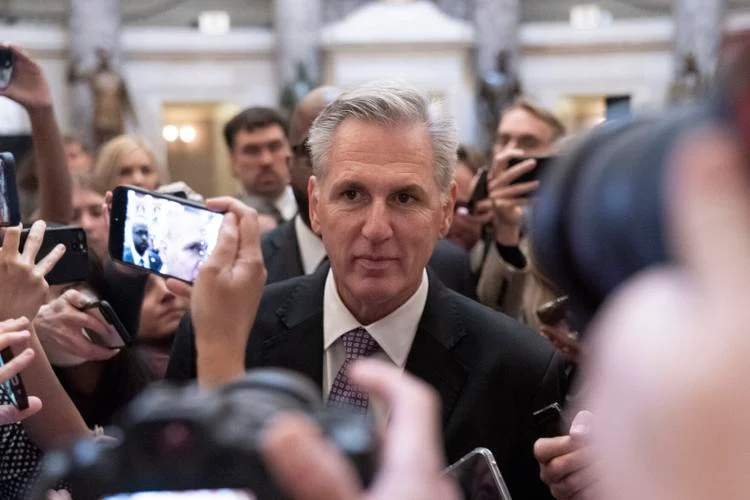
Now that U.S. House Republicans have a leader in Speaker Kevin McCarthy, R-Calif., they are turning their eyes toward an agenda with investigations and a few key legislative goals. McCarthy gave a window into those plans during his acceptance speech over the weekend, taking aim at the border crisis, IRS funding, and education. The new Republicans’ rules package included a promise to vote on those issues as well as abortion and others as part of the deal that got McCarthy the needed Speaker votes over the weekend. “This is what we’ve been fighting for,” U.S. Rep. Matt Gaetz, R-Fla., one of McCarthy’s most vocal opponents, wrote on Twitter, referring to the rules package. While the Republican holdouts will see some rules changes because of their resistance, they are still a small minority in the House and will likely be unable to steer the legislative ship. One of the items that does seem most promising for broader support is the push to undo President Joe Biden’s aggressive expansion of the IRS, a move that sparked controversy as Biden promised to partially pay for his rash of recent spending by auditing more Americans. “According to CBO, Democrats’ supercharged IRS will cause audit rates to ‘rise for all taxpayers, ’ and a conservative analysis shows that returning audit rates to 2010 levels would mean 1.2 million more audits with over 700,000 of those falling on taxpayers making $75,000 or less,” the Republican press office for House Ways and Means said in a statement. Other tax items that could see legislative action are a bill to make the Tax Cuts and Jobs Act permanent, a vote to repeal the inflation tax on capital gains as well as the 1099-K IRS paperwork provision. With a divided Senate and a Democratic president, though, Republicans will have trouble pushing through any conservative legislation. What they can do and have made clear they will focus on are using their investigatory powers to unearth more information on a string of controversies in recent years. After taking the majority in November, House Republicans on the Judiciary and Oversight Committees were quick to announce their plans to investigate Hunter Biden, the president’s son. Lawmakers at a news conference argued that Hunter Biden in particular used his father’s influence to negotiate business deals overseas that may have used federal resources and even compromised the Biden family. “Evidence obtained by Committee Republicans reveals Joe Biden lied to the American people about his involvement in his family’s business schemes,” said House Oversight Committee Ranking Member James Comer, R-Ky. “The Biden family business model is built on Joe Biden’s political career and connections with Joe Biden as the ‘chairman of the board.’ Biden family members sold access for profit around the world to the detriment of American interests. If deals compromise President Biden with foreign adversaries and they are impacting his decision making, this is a threat to national security.” House Republicans have also put Big Tech in their sight, as a string of news reports have shown that the White House, federal law enforcement, and tech companies have apparently worked together for years to censor Americans on a range of issues, most notably COVID-19. House Oversight Republicans recently sent a letter to Facebook and Twitter on that very issue, demanding more information. “Committee Republicans continue to investigate whether U.S. government officials have participated in suppression and censorship of lawful speech in violation of the U.S. Constitution,” the letter said. “Reports continue to surface that social media companies acted on the behest of government agencies and officials when removing, restricting, or disclaiming content. The American people and their elected representatives must know the extent to which their government has engaged in prohibited censorship to expose and prevent this unlawful conduct.” Despite these ambitions, this legislative term is effectively shorter than most. Soon, it will be a presidential election year. Both parties will become focused on campaigning and fundraising, which means legislating will largely take a back seat. Committee investigations, though, could be used to push for media attention. “Aside from the House’s policy agenda, conservatives will have new opportunities to carry out the much-needed oversight investigations into the administration’s incompetence at the southern border, the origins of COVID-19, Hunter Biden’s laptop and shady business dealings, and the Big Tech censorship of these stories,” said Heritage Action Executive Director Jessica Anderson. “These investigations need to both expose the truth and follow through with accountability measures.” Republished with the permission of The Center Square.
Will Sellers: Dividing church and state; uniting faith and reason
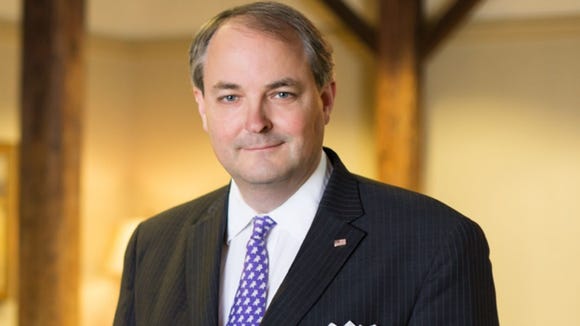
Five Hundred years ago, the Protestant Swiss reformer, Ulrich Zwingli’s theology was designated the official religion of Zurich. The rumblings of the Reformation were just starting. As education expanded, literacy allowed more people to read the Bible, increasing curiosity about theology. Families sent their best and brightest sons to become ordained priests. Seminaries become a concentration of intellectually curious male teenagers; rather than accept the authority of the status quo, these seminarians questioned the practices of the church when compared to their reading of the Scriptures. Like Martin Luther, Zwingli had no desire to break from the established church. Instead, he simply wanted to reform the church and conform its practices with his understanding of the Bible. Having some sense of academic freedom in debating points of theology, Zwingli asked the Zurich City Council to convene a debate to decide which doctrines should be allowed to be preached in the city. At this time, there was only one church, both literally and figuratively. Zwingli was designated as the minister for the church in Zurich. He was well-educated and influenced by the humanist Erasmus into studying not only the Bible but also other scholarly texts of the virtuous pagans. Zwingli was an engaging and innovative preacher and known for ministering to the sick and downtrodden. As he began his ministry in Zurich, his unique worship style included reading passages from the Bible in the language of his mostly illiterate congregation. And, as he read through each verse, he would comment on the words of the passage, providing interpretation and application to current issues. Working his way through the Bible, Zwingli began to note differences between the practices of the church and passages in the Bible. His sermons expressed thoughts that were at odds with certain customs and traditions of the establishment. At first, some of these differences were minor, but, as he preached his way through the Bible, the differences became more significant. When some complained, Zwingli decided the best way to deal with accusations of error was to host a debate. At his request, the city council asked the Bishop to come and discuss Zwingli’s 67 points of theology. Amazingly enough, in January of 1523, Zwingli had not heard of Martin Luther or his 95 theses, but, in many ways, his concerns were very similar. It is hard to imagine that the agenda for any city council meeting would include a theological debate to decide which Biblical teaching a city would embrace, but it occurred in Zurich. Separation of church and state was a foreign concept. Government officials and clergy worked together as faith was established, recognized, and supported by the government. Freedom of conscience and liberty of belief was virtually a heretical abstraction. It made just as much sense for a city to decide the faith of its citizens as it would today to decide a zoning variance. The debate was held. When the Bishop’s scholars failed to effectively debate Zwingli and were unprepared to answer his 67 questions, the city councilors voted and confirmed that Zwingli would continue to be their minister, and his teaching would be the established beliefs of Zurich. Zwingli’s triumph was the beginning of the Swiss Reformation and would have a lasting impact on the goals, beliefs, and techniques of Protestantism. But with the city establishing a church and the church taking on roles of the state, a collision course was bound to occur. And it did. Rather than allowing debate over issues and differing ideas, Zwingli did what he accused others of doing. He developed a smug dogmatism, accepting only his beliefs as accurate and squelching all dissent. As a result, he used the power of the state on behalf of the church to punish and even execute those with opposing views. Instead of becoming a bastion of toleration, Zurich became known for persecutions. So great was Zwingli’s zeal for his faith, he encouraged a war against other Swiss cities that rejected his belief system but continued to acknowledge the authority of the Pope. Zwingli would tragically die on the battlefield, literally fighting for his faith. The beliefs that Zwingli held inform Protestant Christianity today. However, his practices in advocating for a politically established church and imposing his beliefs as an official religion without room for dissent could not survive. What Zwingli and other reformers failed to understand is that the faith they developed from their reading of the Bible would be similarly experienced by others. But, as with any writing, people find different interpretations based on any number of grammatical conventions, preconceived notions, prejudices, or personal experiences. In establishing a state-sponsored religion, Zwingli should have realized that the ability to argue beliefs and allow open debate is as good for faith as for any thought process. Ideas are polished by debate, and dissent makes faith stronger. A healthy dose of skepticism is good for confirming aspects of faith. For a political community to prosper, toleration of diverse beliefs is entirely appropriate. Learning from this experience, the United States Constitution was an attempt to allow all beliefs to compete for the souls of the faithful. Americans realized that the personal nature of faith made it impossible to have any government impose it. Unlike the cities and other political subdivisions of the Old World, America would not allow state religions and would opt, instead, for freedom of conscience. While governments cannot designate and support one faith, it can limit practices so that faith doesn’t become a license or an excuse to break established law. Zwingli and the other reformers showed that engaging in debate about faith was intellectually progressive. But government can only provide a framework of allowing open debate so that faith is discussed and opposing points of view are respected. The debate, however, should never stop, but continue as ideas are challenged and discussed to provide a moral fabric of virtue, peace, toleration, and goodwill to stabilize the state. Will Sellers is a graduate of Hillsdale College and an Associate Justice on
Daniel Sutter: Economics and conspiracies

Elon Musk’s release of internal Twitter communications, the “Twitter Files,” confirmed the shadow banning of conservative politicians and pundits, previously dismissed as a conspiracy theory. Studying economics generates wariness of conspiracy theories in two ways, by highlighting the organizational difficulties and demonstrating the potential for unplanned order in society. Let’s first consider what constitutes a conspiracy. For one, multiple people, as a lone wolf, merely has a plan. And generally, secrecy, which implies illegal or unapproved actions. Dozens of police officers investigating a murder is not a conspiracy. Collective action problems make the organization and execution of conspiracies difficult. Economics employs methodological individualism to study markets, a fancy term meaning building up from the choices and actions of individuals. For example, demand represents the buyers’ half of a market, and we build demand from the choices of each consumer. Groups are comprised of individuals with their own goals and incentives. Methodological individualists are unlikely to commit the unitary actor fallacy or focusing exclusively on a leader’s choices. Generally, a tension exists between individuals and the group. Frequently groups pursue what economists call public goods or ameliorate public bads. Emphasis here is on publicness, meaning that all members share the outcome, like, say, a fun block party or noise pollution from a factory. But action is costly. Group members are better off letting someone else do the work and still benefitting, or what economists call free riding. Collective action problems do not necessarily doom groups. People can recognize their common interest, and mechanisms exist to control free riding. Still, conspiracy theorists must detail how conspirators are motivated to actively participate rather than let others do the heavy lifting. Organizing a conspiracy involving a criminal or despicable act is even harder. Now each potential conspirator can, in addition to free riding, reveal the plot to the authorities or the public, possibly earning fame and fortune as a whistleblower. We might observe leaders exhorting contributions to the common cause. Such pleas, especially when part of a written historical record, appear to prove conspiracy. But these statements are often aspirational; we should still look for evidence of action, not just for words. In addition to collective action problems, economics also teaches about spontaneous order, which refers to institutions which are the product of human action but not human design. To take an example, consider the emergence of money. People engaging in barter recognize difficulties, like searching for a “double coincidence of wants” or making ten trades to get what they want. Someone realizes that a widely liked good is easier to trade and accepts it even though they want something else; others follow along. Eventually, a medium of exchange emerges because it makes people’s lives better. Enormous societal change can occur without anyone issuing orders. Urbanization and the Industrial Revolution occurred as rising agricultural productivity freed up labor. At the same time, harnessing steam power allowed the mass production of things like textiles provided workers could be found. Factories offered high enough wages to get people to move to cities. Freedom and the desire for better lives can change society. If you do not recognize spontaneous order, patterns in society will appear planned by someone, and presumably for their benefit. And if we cannot identify the designers, a secret cabal must be at work. One of the world’s most successful conspiracy theorists, Karl Marx, attributed the Industrial Revolution to factory owners (the capitalists), who made everything happen to exploit the proletariat. Unplanned order renders theories of control, including conspiratorial control, unnecessary. Collective action problems and spontaneous order are general considerations, not evidence against any conspiracy. Maybe the CIA did kill John F. Kennedy. Conspiracies are difficult to disprove, in part because secrecy is usually an element of the conspiracy. But massive conspiracies, like the Loch Ness monster, are highly unlikely to both exist and remain hidden. Daniel Sutter is the Charles G. Koch Professor of Economics with the Manuel H. Johnson Center for Political Economy at Troy University and host of Econversations on TrojanVision. The opinions expressed in this column are the author’s and do not necessarily reflect the views of Troy University.
DOJ reviewing potentially classified docs at Biden center
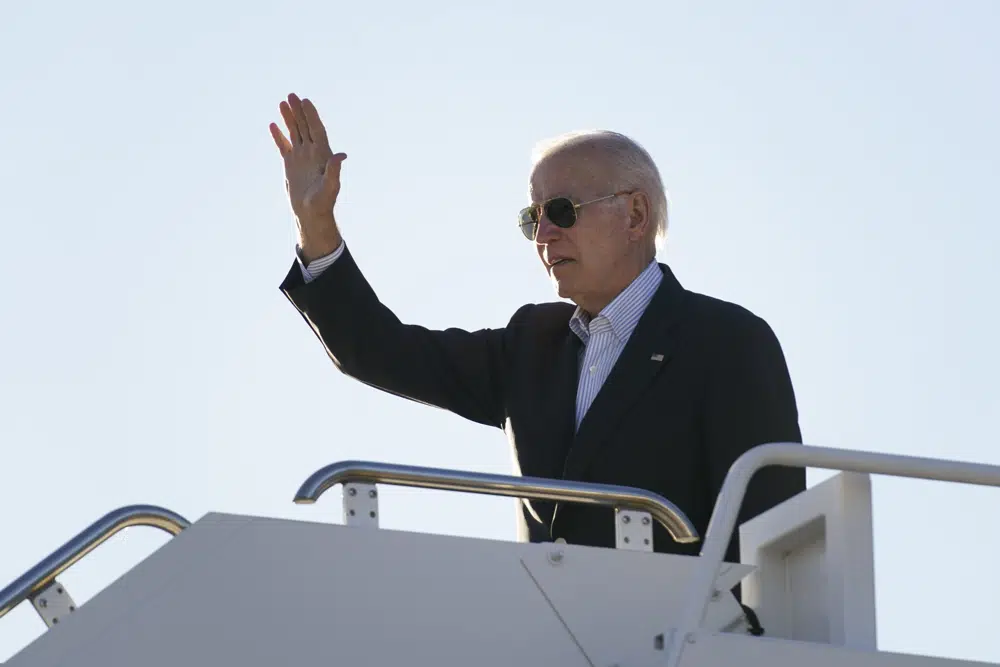
The Justice Department is reviewing a batch of potentially classified documents found in the Washington office space of President Joe Biden’s former institute, the White House said Monday. Special counsel to the president Richard Sauber said “a small number of documents with classified markings” were discovered as Biden’s personal attorneys were clearing out the offices of the Penn Biden Center, where the president kept an office after he left the vice presidency in 2017 until shortly before he launched his 2020 presidential campaign in 2019. The documents were found on November 2, 2022, in a “locked closet” in the office, Sauber said. Sauber said the attorneys immediately alerted the White House Counsel’s office, who notified the National Archives and Records Administration — which took custody of the documents the next day. “Since that discovery, the President’s personal attorneys have cooperated with the Archives and the Department of Justice in a process to ensure that any Obama-Biden Administration records are appropriately in the possession of the Archives,” Sauber said. A person who is familiar with the matter but not authorized to discuss it publicly said Attorney General Merrick Garland asked U.S. Attorney for the Northern District of Illinois John Lausch to review the matter after the Archives referred the issue to the department. John Lausch was appointed to his post by former President Donald Trump. Trump’s storage of classified documents and presidential records at his private club in Florida is part of a separate Justice Department probe that Garland has tapped special counsel Jack Smith to investigate. The FBI served a search warrant on the Mar-a-Lago compound last year to seize classified and presidential records after spelling out probable cause that the former president and his attorneys had not properly turned them over to the federal authorities despite repeated requests. The National Archives did not immediately respond to a request for comment Monday. CBS was first to report on the discovery of the potentially classified documents. Republished with the permission of The Associated Press.
Gov. Kay Ivey announces rules for prison ‘good time’ incentives
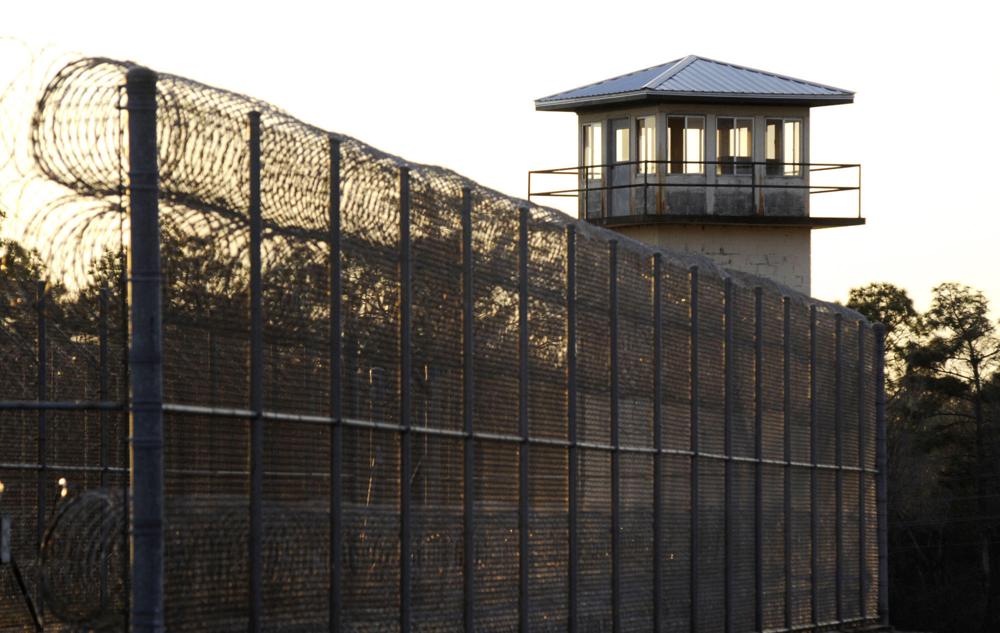
On Monday, Alabama Gov. Kay Ivey announced new rules for prison “good time” incentives that allow some inmates to shorten their prison stays based on their behavior. Ivey signed an executive order that she said will provide “clear rules” for prison staff and inmates on how much “good time” credit will be lost for different categories of offenses and how an inmate can restore the credit. “Our actions today, very simply put, keep violent offenders off the street, incentivizes inmates who truly want to rehabilitate and better themselves, reinforces the concept that bad choices have consequences and keeps our public safe,” Ivey said during a press conference at the Alabama Capitol. Alabama law allows inmates sentenced to 15 or fewer years in prison to receive “good time” behavior incentives to reduce their time in prison. In 2021, about 9% of state inmates were eligible for these incentives, according to the Alabama Sentencing Commission. People convicted for rape, murder, or manslaughter are ineligible. However, the order “essentially ends good time or makes it extremely difficult for anyone to earn it given the brutal conditions across the prison system,” said Carla Crowder, executive director of Alabama Appleseed Center for Law and Justice. “This is absurd and reflects state leadership that is completely out of touch with the public safety crisis in Alabama prisons. It would be laughable, if it weren’t so sad and dangerous, that anyone believes harsher punishments will fix this crisis and make anyone safer,” Crowder said. She said many of the people eligible for good time and impacted by the executive order are young people incarcerated for nonviolent drug and property offenses. Ivey’s executive order categorizes offenses from low to severe — and outlines how much “good time” will be forfeited. For example, an inmate will lose a minimum of three years of good time for a high-level violation — which includes assault, possession of a weapon, encouraging a work stoppage, and failure to obey a direct order from a prison employee. An inmate can apply for restoration in 90-day increments after a year of good behavior. Ivey said she supports the use of good time behavioral incentives, which are used to try to combat prison violence by giving inmates a reason to follow rules, but to begin with, there should be concrete rules in place. The state prison system has come under criticism and federal scrutiny for high rates of violence. The U.S. Department of Justice has an ongoing lawsuit against Alabama over prison conditions. After the fatal shootings of two law enforcement officers, some aspects of Alabama’s good time law have been criticized by state politicians. Lawmakers last year added manslaughter to the list of offenses ineligible for good time following the shooting death of Sergeant Nick Risner of Sheffield. A man accused of killing Bibb County Deputy Brad Johnson in 2022 had been released with good time despite escaping from a work release center in 2019. A spokesperson for the prison system said in July that Austin Hall, who was in a local jail on other charges after being captured, never returned to state prison custody after his escape, so he never had a disciplinary hearing to revoke the good time. Under Ivey’s order, escape would cause an inmate to permanently lose all accrued good time credit. The order also makes changes aimed at improving communication with other law enforcement agencies regarding escapes and for state prison staff to quickly assume physical custody of an escaped inmate upon recapture by another state law enforcement agency. Republished with the permission of The Associated Press.


